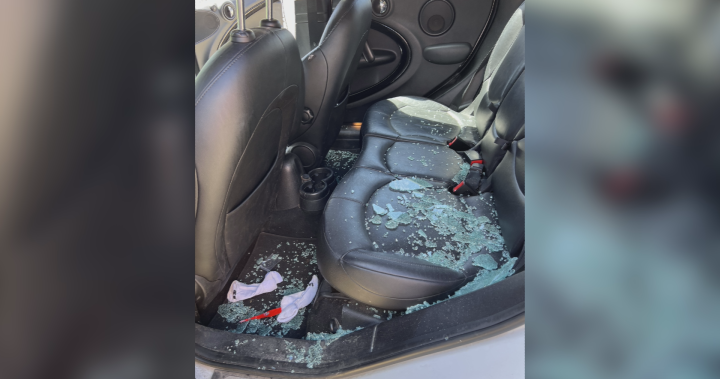A Lake Country family’s summer vacation turned into a distressing ordeal when they became victims of an opportunistic crime wave targeting vehicles at Manning Park, a popular recreational destination in British Columbia’s Cascade Mountains.
The Marshall family arrived at Manning Park last weekend, eager to enjoy hiking trails and pristine lakes, only to discover their vehicle had been broken into overnight. The perpetrators shattered their rear window and ransacked the interior, making off with personal belongings and camping equipment.
“We woke up to find glass everywhere and our belongings scattered,” said Karen Marshall, still visibly shaken by the incident. “It’s not just the stolen items—it’s the violation of personal space that really affects you.”
According to park officials, the Marshalls weren’t alone. At least eight other vehicles were targeted in what appears to be a coordinated series of break-ins at various parking lots throughout Manning Park. Most concerning to authorities is the brazen nature of these crimes, with thieves operating in areas frequented by families and outdoor enthusiasts.
RCMP Constable James Thornton confirmed the uptick in vehicle-related crimes at Manning Park. “We’re seeing a concerning pattern emerge this summer. These aren’t just random acts—there appears to be organization behind these break-ins,” Thornton told CO24 News.
The financial impact on victims extends beyond stolen property. The Marshalls faced the added burden of emergency vehicle repairs far from home, costing them over $600 to replace their shattered window before they could safely return to Lake Country.
“We had to cut our vacation short and spend hours dealing with insurance claims and police reports instead of enjoying nature with our children,” Karen explained. “It’s heartbreaking to see their disappointment.”
Park authorities have responded by increasing security patrols in parking areas and campgrounds, while the RCMP has dedicated additional resources to investigate the break-ins. Visitors are now being advised to take extra precautions, including removing all valuables from vehicles and using anti-theft devices when possible.
Tourism experts note these incidents raise broader concerns about visitor safety in Canada’s recreational areas. “When families don’t feel secure, it impacts the entire outdoor tourism industry,” explained Dr. Lisa Chen, tourism safety analyst at the University of British Columbia. “Parks need to balance accessibility with adequate security measures.”
For the Marshall family, the experience has fundamentally changed how they approach outdoor adventures. “We won’t stop camping and hiking—that would let the criminals win,” Karen reflected. “But we’ll definitely be more cautious about where we park and what we bring.”
As summer tourism reaches its peak across British Columbia’s parks, authorities are urging visitors to remain vigilant and report suspicious activity immediately. The question remains: can our wilderness destinations effectively protect visitors while maintaining the sense of freedom and escape that draws people to these natural spaces in the first place?









